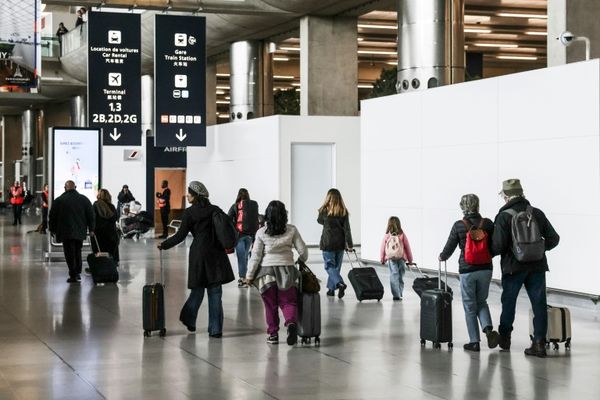
Leading Conservatives including two former Tory education secretaries have urged the incoming prime minister to address rising cost pressures on schools as a matter of urgency, as head teachers struggle to pay soaring energy and wage bills.
With the start of the new academic year just days away, many schools in England are already overwhelmed by energy price rises in excess of 200% – with worse to come – plus the additional cost of unfunded pay rises and mounting inflation.
Without additional funding, school leaders are warning of redundancies, bigger class sizes and cuts to the curriculum, which they say could damage children’s education for years to come. Schools are not covered by the cap on household energy bills.
Kenneth Baker, who was education secretary from 1986 to 1989, said schools would go into the red without government intervention. “We’re heading into a really ghastly two-year period and it’s going to require remarkable leadership to come out of this smiling,” he said.
Justine Greening, who was education secretary under Theresa May, said children and schools were facing an “education double-hit” after the pandemic.
“Education has been badly disrupted by Covid and now schools budgets are being drastically eaten away by inflation, meaning there’s less to invest in young people’s futures,” said Greening, who founded the Social Mobility Pledge, a scheme aimed at broadening social mobility and opportunity.
“Education has to be at the heart of the new government’s levelling up strategy, whoever is running it, so the pressures on school budgets can’t be ignored.”
There has been criticism of the two Tory leadership contenders, Liz Truss and Rishi Sunak, who have both spoken in favour of grammar schools, but have said less about the issues facing schools now.
Lord Baker said: “All the attention has been on the health service; the education service has not really featured for the leadership candidates. They’ve just touched on it.
“I think the new education secretary will have to go back and ask for more money, which they probably won’t get, so there’s going to be a huge pressure on schools. Some schools are bound to go in the red. It’s going to be a very critical year and a huge amount of trouble is going to be caused in the education system.
“If they overspend, a big deficit will build up, and how are they ever going to meet that deficit? They can’t. They’re in a cycle of actual financial decline. I think it will be a very difficult time for schools. Teachers are going to try very hard to maintain as high a level of education as they can do. But I think some [schools] will have to go to four days, some may go to three days.
“That creates problems for families. What do they do if the parents are working? We’re heading into a really ghastly two-year period and it’s going to require remarkable leadership to come out of this smiling.”
The last time schools attempted to save money by trimming the school week was in 2017. Many school leaders have disputed claims that such action is on the cards again, and the government has already stressed it expects schools to remain open, morning and afternoon, five days a week.
Robert Halfon, the Tory chair of the Commons education committee, said extra funding for energy bills, or energy caps for schools, would be little more than sticking plaster and instead called on the next government to tackle poverty by introducing a radical programme for change that had the scale and vision of Lyndon Johnson’s expansion of US welfare legislation in the 1960s.
“Whoever becomes the new government, they need to listen to Mr Johnson and I don’t mean Boris Johnson, I mean President Lyndon B Johnson. In 1965 he introduced a landmark war on poverty,” said Halfon.
“We’ve had big debates during the leadership contest about the NHS and the economy and the cost of living, yet education seems to have fallen by the wayside. When [Lyndon] Johnson got in, it was the cornerstone of his war on poverty. We need the equivalent of that here.”
A Department for Education spokesperson said the government recognised schools – much like the wider economy –were facing increased costs.
“Cost increases should be seen in the wider context of funding for schools, with budgets to rise by £7bn by 2024-25, compared with 2021-22, including £4bn in this financial year alone. This is a 7% cash terms a pupil increase compared with 2021-22 and will help schools to meet wider cost pressures, including energy prices and staff salaries,” the spokesperson said.
Halfon, who is supporting Sunak, said the additional funding made available to schools was before the war in Ukraine and its impact on bills. “Liz Truss has talked about increasing defence and health spending. What about education? It’s the major challenge of our times in my view,” said Halfon.
Estelle Morris, a former Labour education secretary, echoed his concerns. “In Birmingham where I chair the [education] partnership it’s a huge issue. My frustration is the lack of honesty on the part of the government. When the heads say the costs are so enormous it’s causing them a problem, the only response you get is ‘We’ve increased the schools budget by X,’” she said.
“Schools are about to go back and as far as I can hear and see, there’s not a sensible conversation going on. Nothing is going to happen unless we’ve got ministers who say: ‘I can see this is a problem.’ Any money they announced as extra, it was never ever ever to do with the increased costs of energy.”
Lady Morris also expressed concern about the state of school buildings. “We can’t have cold schools. It’s against the law. I remember when I was a teacher, if the temperature dropped and we couldn’t keep schools warm – if the boiler broke – we had to send the kids home.
“We can’t be the sort of nation that claims to be trying to steady the ship after all these children have suffered under the pandemic, then say we are closing schools because we can’t pay the electricity or gas bill. We can’t be that kind of country.”
On school opening hours, the DfE spokesperson said: “Regular school attendance is vital for children’s education, development, and wellbeing, and we expect all schools to be open morning and afternoon, five days a week.”
Geoff Barton, the general secretary of the Association of School and College Leaders, said: “We’re extremely concerned that the new term will see schools and colleges in the midst of a full-blown funding crisis and that they will have to make impossible choices about where to make cuts.
“The problem is that they are facing huge increases in energy bills as well as pay awards for which there is no additional government funding. The last thing they want to do is cut educational provision but with massive extra costs and not enough money to pay for them there is only one way this is going to go.”







